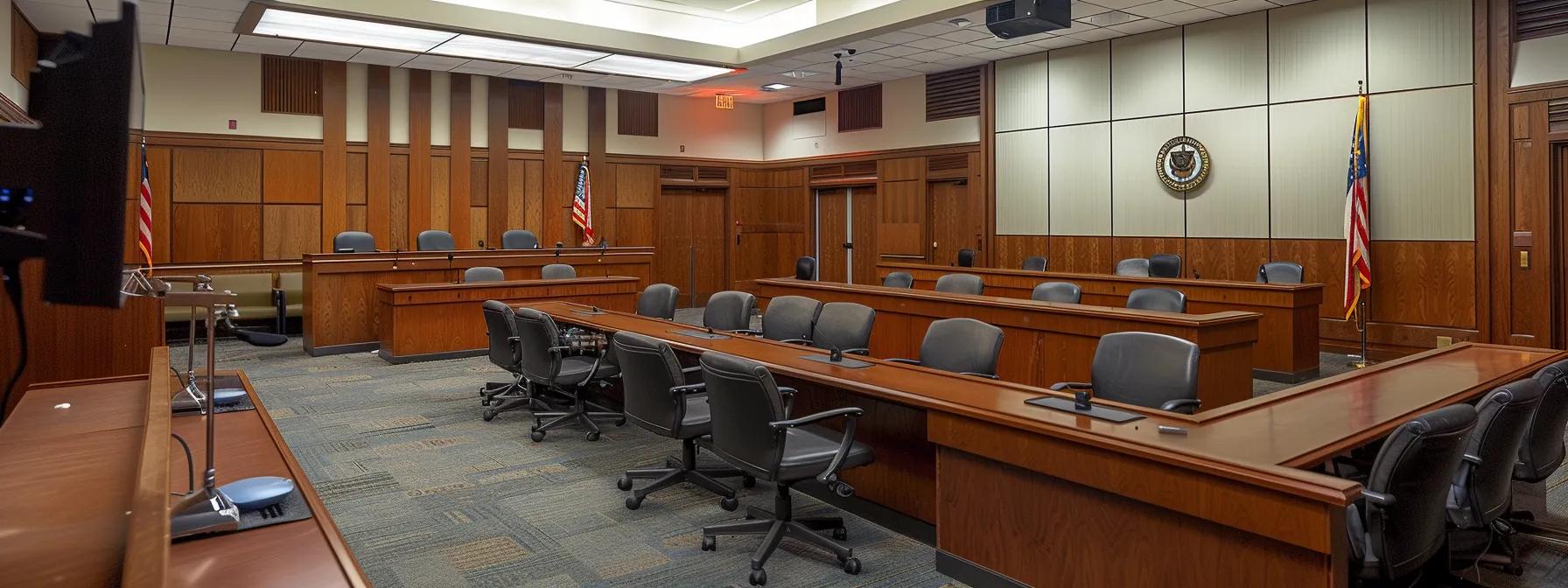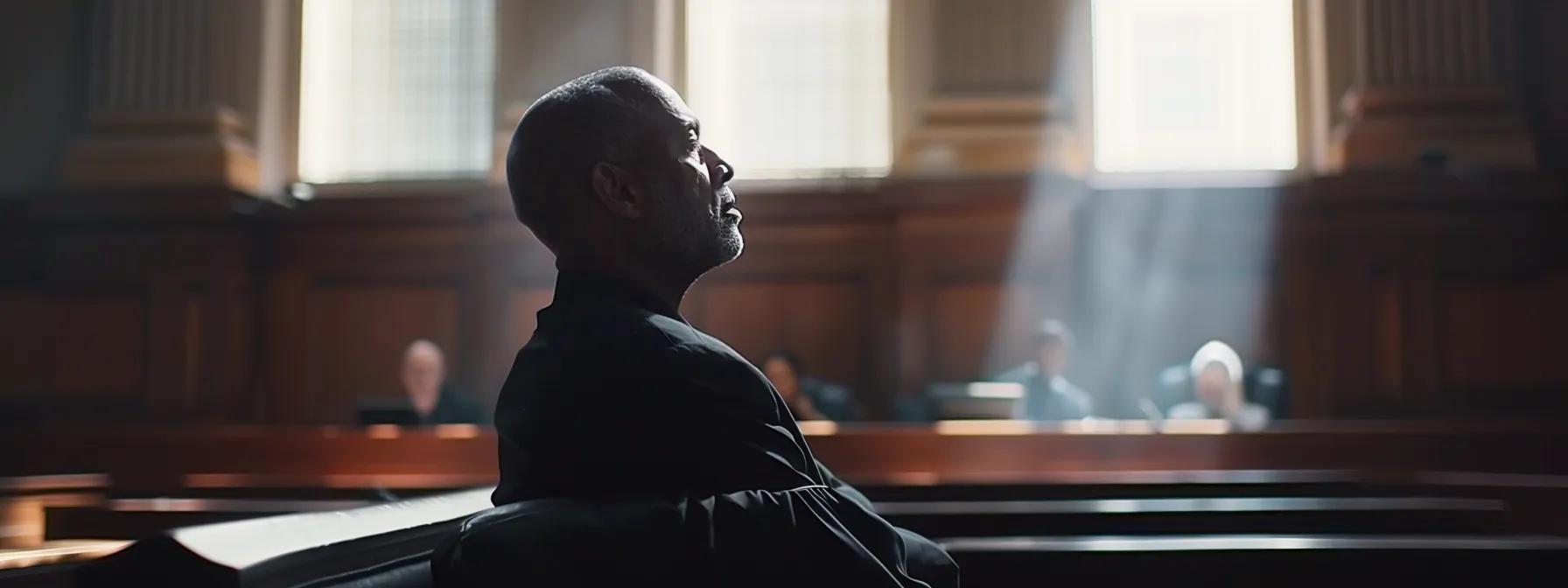Preparing for What to Expect at a Divorce Trial
Divorce trials can be a challenging and emotionally draining experience, leaving those involved uncertain about what to expect. For individuals preparing to face a divorce trial, understanding the process, gathering the necessary documentation, and developing a robust legal strategy—including guidance from coastal virginia law—are crucial steps toward a successful outcome. This article, grounded in seasoned legal expertise, breaks down the various stages of a divorce trial, the importance of organized documentation, and the strategies to employ when facing the courtroom. It is designed to serve as both a guide and a source of reassurance for those in need of clear legal advice during difficult times.

Key Takeaways
- The divorce trial process involves multiple stages requiring careful preparation and legal insight.
- Essential documentation, ranging from financial records to personal events, plays a key role in building your case.
- Developing a strong legal strategy and preparing both mentally and emotionally are critical for trial success.
- Proper courtroom presentation and post-trial follow-up procedures are necessary benefits for a favorable outcome.
Understand the Overview of the Divorce Trial Process

The divorce trial process is a structured legal procedure where both parties present their arguments, evidence, and testimonies before a judge or jury. This overview clarifies the key stages of a trial, such as opening statements, evidence presentation, witness examinations, and closing arguments.
Learn About the Key Stages of a Divorce Trial
There are several stages during a trial, each designed to ensure a fair evaluation of the case. Initially, the trial begins with opening statements outlining the parties’ positions. Evidence is then meticulously presented while witnesses are cross-examined, ensuring that every detail is scrutinized. This stage is critical because the accuracy and clarity of the evidence can heavily influence the trial’s outcome.
Identify the Roles of Judges and Lawyers in the Trial
Judges guide the courtroom process and ensure that all legal procedures are followed, while lawyers advocate for their clients by presenting arguments supported by compelling evidence. The judge makes rulings on the admissibility of evidence and ultimately, the verdict. Effective communication and argumentation skills of the divorce attorney are often decisive factors in achieving a favorable result.
Recognize How Evidence Is Presented During the Trial
Evidence is presented through a variety of means, including physical documents, financial records, and witness testimonies. It is essential that all evidence is organized and clearly correlates with your claims. Proper presentation can alleviate misunderstandings and increase the persuasiveness of your argument, which is essential during direct examinations and cross-examinations.
Understand Potential Outcomes and Rulings in Divorce Cases
Outcomes may range from mutually agreed settlements to rulings based on issues such as asset division, custody, and support. The trial’s verdict can be heavily influenced by the evidence presented and the credibility of witnesses. Understanding the range of possible outcomes helps in preparing for various scenarios and aligning expectations accordingly.
Discover Common Challenges Faced During Trials
Divorce trials often involve emotionally charged testimonies, conflicting evidence, and complex legal arguments. Common challenges include the difficulty of quantifying intangible assets, establishing credibility, and confronting unexpected legal maneuvers from opposing counsel. Awareness of these challenges can help in devising counterstrategies to mitigate potential setbacks.
Know the Importance of Preparation Prior to Trial
Preparation is key to a successful trial. It involves meticulous case review, discussion of legal strategy with your attorney, and rehearsal of testimonies. With comprehensive preparation, parties can address unexpected issues confidently. Being well-prepared minimizes surprises and strengthens the case in the eyes of the trier of fact.
Gather Essential Documentation for Your Divorce Trial

Gathering all necessary documentation is crucial for proving your claims and negotiating fair outcomes in divorce trials. Detailed records support your position and facilitate a transparent legal process.
Compile Financial Records and Statements for Transparency
Financial records such as bank statements, tax returns, and pay stubs are indispensable. These documents establish a clear picture of each party’s financial situation and support claims regarding asset division and alimony.
Organize Personal Documents Relevant to Your Case
Personal documents including marriage certificates, prenuptial agreements, and correspondence can substantiate claims of irreconcilable differences or provide evidence of infidelity. Organized documentation strengthens the overall narrative and credibility of your case.
Collect Evidence Supporting Your Claims and Arguments
This includes witness statements, emails, photographs, and any proof that corroborates your account of events. Detailed evidence is especially vital when disputes arise over issues like domestic violence or financial misconduct.
Review Any Previous Court Orders or Agreements
Prior orders or agreements set the foundation for current proceedings. Reviewing them not only provides context but also assists in reinforcing or challenging existing legal positions, which is beneficial when discussing custody or support issues.
Prepare a Timeline of Significant Events in Your Marriage
A chronological timeline can simplify complex marital histories and highlight critical events. This helps clarify the progression of the relationship and the reasons behind the divorce, enabling the court to better understand your case.
Ensure All Documentation Is Accurate and Up-to-Date
Accuracy is paramount in legal proceedings. Outdated or incorrect documents can weaken your case and create legal vulnerabilities. Regular review and updates ensure your evidence remains compelling and legally sound.
Develop a Strong Legal Strategy Ahead of Trial

Developing a robust legal strategy is essential for any divorce trial. An effective strategy not only helps in outlining your case clearly but also prepares you for potential counterarguments from the opposing side.
Consult With Your Lawyer to Define Your Objectives
Meeting frequently with your divorce attorney helps clarify objectives and determine the most effective legal approach. Clearly defined objectives make it easier to respond to developments during the trial.
Discuss Potential Witnesses to Support Your Case
Identifying credible witnesses who can affirm your statements is a critical component of the trial strategy. Witness testimonies can provide impartial support and add depth to your arguments regarding custody, support, or allegations of misconduct.
Anticipate Opposing Arguments and Prepare Counterpoints
A forward-thinking strategy involves predicting the opposing counsel’s moves and developing strong counterarguments. This not only highlights the strengths of your case but also demonstrates to the court that you have a comprehensive understanding of the issues at hand.
Role-Play Your Testimony to Build Confidence
Practicing your testimony with your attorney can reduce anxiety and ensure clarity during cross-examinations. Role-playing scenarios allow you to refine your responses and address potentially challenging questions more effectively.
Understand the Impact of Emotional Factors on Trial Strategy
Emotions can cloud judgment and detract from the core arguments. Maintaining a level-headed approach throughout the trial and devising strategies to manage stress are indispensable for a clear presentation.
Adjust Your Strategy Based on Legal Advice and Findings
Flexibility is key. As the trial progresses, staying adaptable allows your legal strategy to evolve in response to new evidence or developments. Continuous consultation with your lawyer ensures that your strategy remains effective and relevant.
Prepare Emotionally and Mentally for the Trial

Facing a divorce trial requires not only legal preparation but also mental and emotional readiness. Trials can be taxing, and maintaining a balanced mindset is crucial for presenting your case effectively.
Establish a Support Network of Friends and Family
A reliable network of supportive individuals can provide emotional relief and practical assistance during the trial process. Their support can help reduce stress and offer reassurance when facing challenging testimonies.
Practice Stress-Reduction Techniques for Calmness
Engaging in stress-relief exercises such as mindful meditation, regular exercise, or therapeutic counseling can ease anxiety. This is especially important for maintaining composure in the courtroom.
Set Realistic Expectations for Trial Outcomes
Understanding that the trial process has its uncertainties helps be mentally prepared. Setting realistic expectations prevents undue stress and allows for a more measured reaction to the final outcomes as determined by the court.
Prioritize Self-Care and Emotional Wellness Leading Up
Taking care of one’s emotional well-being is as important as legal preparation. Consistent self-care routines can help maintain a clear mind, which is critical during exhaustive legal proceedings.
Identify Coping Mechanisms for Trial-Related Stress
Developing personalized coping strategies, such as journaling or engaging in relaxation hobbies, can provide effective ways to manage daily stress during the trial. These mechanisms help maintain focus and prevent burnout.
Visualize Positive Scenarios to Promote a Proactive Mindset
Positive visualization can enhance resilience and boost confidence before entering the courtroom. Imagining favorable outcomes reinforces a determined mindset and encourages proactive behavior amidst challenging circumstances.
Dress and Present Yourself Appropriately in Court

Courtroom presentation significantly impacts how a judge or jury perceives your case. Proper attire and conduct convey seriousness and respect for the legal process.
Choose Professional Attire That Reflects Seriousness
Wearing formal, well-maintained clothing is essential in a courtroom setting. Appropriate attire not only reflects professionalism but also demonstrates respect for the judicial process.
Consider Grooming and Hygiene as Part of Your Presentation
Attention to grooming and personal hygiene plays a vital role. A neat appearance can enhance credibility and leave a positive impression on judges and jurors alike.
Be Aware of Body Language and Its Impact During Trial
Non-verbal cues such as facial expressions, posture, and eye contact can influence courtroom perceptions. Maintaining an upright posture, steady eye contact, and calm gestures reinforces confidence and trustworthiness.
Practice Active Listening During Courtroom Proceedings
Listening attentively to the arguments and testimonies presented by all parties is crucial. Active listening shows respect for the process and ensures you fully understand the proceedings before responding.
Stay Composed and Respectful, Even Under Pressure
Maintaining composure under pressure is essential. Avoid any behavior perceived as disrespectful, as calming your nerves and demonstrating respect for legal authorities improves your overall presentation.
Avoid Distractions to Maintain Focus on the Trial
Remain focused and limit distractions, both in your personal preparation and during the trial. An unwavering focus aids in clear communication and ensures your testimony is both effective and persuasive.
Follow Up After the Divorce Trial for Next Steps

After the trial concludes, following up with your legal team and understanding post-trial procedures is essential. This phase ensures that all court orders are implemented and any further actions are effectively managed.
Review the Trial Outcome With Your Legal Team
Post-trial debriefings with your attorney help clarify the verdict and discuss any implications. This review is important for planning subsequent legal or personal steps in the aftermath of the trial.
Understand the Process for Appealing a Decision if Necessary
If the trial outcome is unfavorable, it is crucial to understand your rights and options for appeal. Your lawyer can provide guidance on whether an appeal is advisable and the specific steps to undertake.
Discuss Post-Trial Actions Regarding Custody or Support
Matters such as child custody, spousal support, and asset division often require follow-up actions. Engaging in further negotiations or court motions after the trial may be necessary to refine or enforce the court’s decisions.
Ensure Compliance With Court Orders Following the Trial
Following the directives issued by the court is imperative to avoid future legal complications. Keeping track of compliance requirements ensures that all parties adhere to the established agreements.
Maintain Open Communication With Your Lawyer Post-Trial
Continued dialogue with your attorney will help manage any emerging issues or necessary modifications to the court’s rulings. This ongoing relationship is key to promptly addressing any concerns that arise after the trial.
Plan for the Emotional Transition After the Trial Ends
The end of a trial often marks the beginning of a new chapter. Planning for the emotional transition by seeking counseling or support groups can facilitate recovery and help you move forward positively.
Final Thoughts

In summary, navigating a divorce trial successfully demands thorough preparation, both legally and emotionally. With a clear understanding of the trial process, essential documentation, and a well-crafted legal strategy, parties can approach the courtroom with confidence. Maintaining proper self-care and a professional demeanor further contributes to a favorable outcome. Ultimately, proactive follow-up and continuous legal support are key to managing the aftermath and transitioning into the next phase of life.
Frequently Asked Questions
Q: What is the first step to prepare for a divorce trial? A: The initial step involves understanding the trial process and gathering essential documentation, such as financial records and personal evidence, to support your claims.
Q: How can emotional preparation impact trial outcomes? A: Emotional preparation through stress-reduction techniques and support networks ensures clear testimony and composure, which significantly enhances credibility in court.
Q: Why is it important to follow up after the trial? A: Post-trial follow-up with your legal team ensures compliance with court orders and provides a pathway for appeals or further negotiations, supporting long-term resolution.



